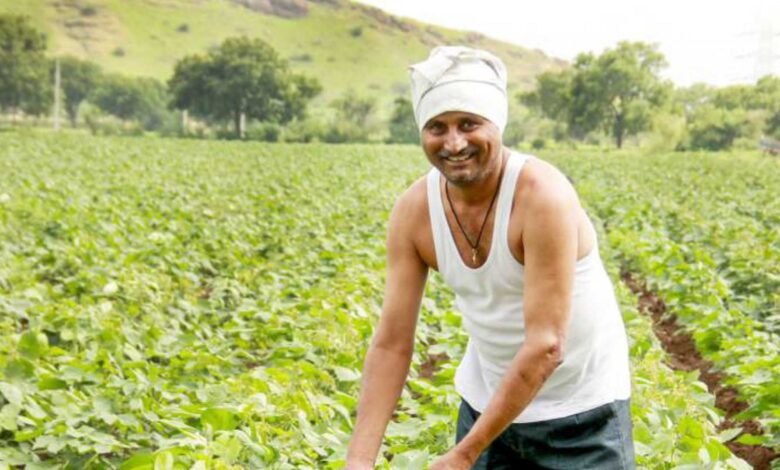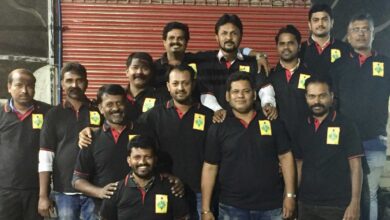

Cooperative farming and sustainable practices are playing a pivotal role in transforming the agricultural landscape in India. This article explores the journey of Puneet Singh, a director in the Northern Formal Mega FPO, and his experience with Farmer Producer Organizations (FPOs) and cooperatives. These organizations aim to address the challenges faced by small-scale farmers by providing collective marketing opportunities and fair prices for their crops.
Puneet Thind is an agri entrepreneur and young farmer from Ambala (Haryana). He holds a Masters’s in International Business (MIB) and Bachelor’s degree in Commerce (B.Com). He is an IVLP-USA fellow and Founder & Director of Northern Farmers Mega FPO (Federation of 43 Farmer Producer Companies in North India). He is also a co-founder of 2 Start-up companies in the Food Sector. He is one of the youngest Farm Investors from India to invest in farming in Ethiopia (Africa). He was also felicitated by the Government of Haryana with the FPO Ratan Award and Nominated for the National Advisory Group on Agriculture for consultation with the Hon’ble Prime Minister of India.
The cooperative farming model has gained significance in India due to land fragmentation and the joint family system. The government has introduced supportive measures and programs to promote FPO formation. Successful collaborations between FPOs, government agencies, and private companies demonstrate the effectiveness of this approach in contributing to sustainable agriculture.
Technological advancements have played a crucial role in the growth of FPOs. Government policies support the adoption of technology in agriculture, leading to collaborations with technology partners and the introduction of innovative solutions. However, creating awareness about FPOs and navigating the Company Act can be challenging due to deeply ingrained perceptions favoring traditional cooperatives.
One of the top challenges for FPOs is enhancing farmers’ financial literacy. It is crucial to provide resources and educational programs that effectively reach farmers to enhance their knowledge and understanding of sustainable farming practices. Additionally, securing suffcient resources for the post-harvest chain and meeting consumer demands for traceability and sustainability are signifcant hurdles that need to be overcome. Overcoming these challenges presents opportunities for FPOs to educate farmers, access capital, and implement effective marketing and supply chain strategies.
The growth of sustainable farming practices and FPOs holds promise for the agricultural sector in India. By embracing these models, farmers can achieve economic stability, address challenges collectively, and meet the evolving demands of consumers while preserving the environment. Collaboration between FPOs, private companies, and consumers is critical to fostering sustainable farming practices. Education and awareness about the benefts of sustainable choices are crucial for consumer behaviour change. Small-scale farmers can achieve economic viability through cooperatives and collective cultivation.
Looking ahead, sustainable farming in India has the potential to progress signifcantly in the next 5-10 years. The COVID-19 pandemic has infuenced consumer behaviour, with a greater emphasis on quality, production methods, and sustainability. Environmental and health considerations, along with evolving supply chains, will shape the market. Farmers engaged in sustainable practices can expect a better future as the demand for sustainably grown food increases. Supporting sustainable farming is essential for ensuring the availability of pure, quality food and supporting the well-being of farmers and the environment. Recognizing farmers’ efforts, being responsible buyers, and advocating for government support are key aspects of this endeavour. Through collaboration, knowledge sharing, and the adoption of sustainable practices, India’s agricultural sector can thrive.
In recent years, there has been a signifcant increase in organic farming in India. The total area under organic certifcation in the country reached 3.56 million hectares in 2020, showcasing substantial growth compared to previous years. This trend highlights the growing importance of sustainable farming practices and the market’s demand for organic products.
The establishment of Farmer Producer Organizations (FPOs) has gained momentum in India. As of 2021, there are over 10,000 registered FPOs in the country, serving as platforms for smallholder farmers to address their collective needs, access resources, and market their produce more effectively. The Indian government has implemented various initiatives to promote sustainable farming practices. One notable program is the Paramparagat Krishi Vikas Yojana (PKVY), which supports the adoption of organic farming techniques. Under this scheme, farmers are provided fnancial assistance and training to transition from conventional to organic farming.
Precision farming technologies are also playing a vital role in aiding sustainable agricultural practices. Farmers are increasingly utilizing technologies such as precision irrigation systems, drone- based monitoring, and data-driven analytics to optimize resource usage, minimize wastage, and enhance productivity. Agroforestry, a sustainable land-use system that integrates trees and crops, is gaining popularity in India. This practice helps in restoring soil fertility, conserving water, reducing carbon emissions, and providing additional income sources for farmers. According to the State of India’s Forests report, the country witnessed a substantial increase in the area under agroforestry, reaching 15.9 million hectares in 2019.
The movement towards sustainable farming encompasses diverse segments of society. H e a l t h – c o n s c i o u s individuals and mature markets prioritize fresh, pesticide-free food. Educating consumers about the benefts of sustainable choices is crucial. Economic viability for small-scale farmers is enhanced through cooperatives and collective cultivation, enabling them to overcome challenges and create successful business plans.
To reduce knowledge gaps, information technology and mobile networks play a vital role in disseminating credible information. Research institutes can utilize platforms like YouTube to amplify valuable information. Educating both farmers and consumers about the impact of food choices and promoting healthy and sustainable options is essential. Collaboration with international groups, contract farming, and prioritizing sustainable practices are ongoing successes.
In conclusion, supporting sustainable farming is crucial for India’s agricultural sector. Recognizing farmers’ efforts, being responsible buyers, and advocating for government support is essential. By collaborating, sharing knowledge, and embracing sustainable practices, India can advance its agricultural sector, ensuring the availability of pure, quality food while supporting the well- being of farmers and the environment. The progress in organic farming, the establishment of FPOs, and the adoption of precision farming technologies and agroforestry demonstrate the country’s commitment to sustainable agriculture.
With continued efforts, India’s sustainable farming practices can fourish, meeting the evolving demands of consumers and securing a better future for farmers.





